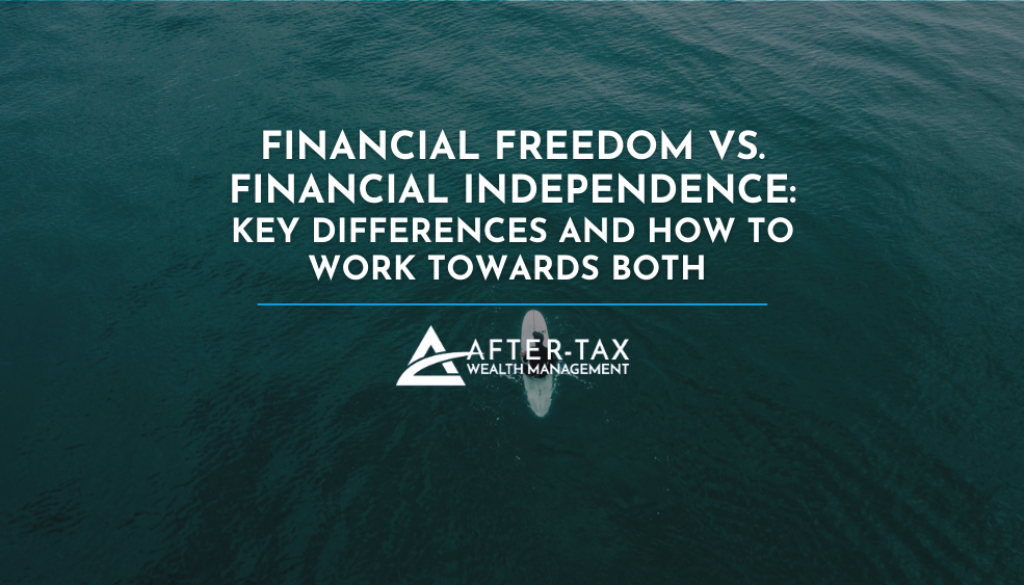Financial Freedom vs. Financial Independence: Key Differences and How to Work Towards Both
Working towards financial independence can often be a lifelong process. But for many, financial freedom may come far sooner—and include some fun along the way. What are the differences between financial independence and financial freedom, and what steps can you take to work towards both goals? Here we discuss the answers to these questions and more.
Financial Independence vs. Financial Freedom
The term “financial independence” is used to describe a point at which someone has enough assets to provide a sufficient income for the rest of their lifetime. This independence can include savings and investments—such as a 401(k), IRA, Roth IRA, or taxable account—a home, a pension, or other sources of passive income like royalties or freelancing work. For many, financial independence is reached just before retirement.
But this doesn’t mean you need to set aside every penny until you’ve reached financial independence. Financial freedom often comes much sooner, and it can look different for each person. Financial freedom is defined as the point at which money is no longer the main motivation in your decision-making process.
Knowing When You Have Financial Independence
Assessing your financial independence will depend on a variety of factors. There are calculators available online that evaluate your current income, current spending rate, and how much you’ve already saved or invested. These calculators may also consider your asset allocation, how much you are setting aside each year, and whether you will be receiving any sources of income like Social Security, an annuity, or a pension.
However, to have a plan that is truly tailored to your situation, it is a good idea to talk to a financial professional about your own unique path to financial independence. Your financial professional can give you recommendations or areas to improve, whether it is switching to a post-tax retirement plan or taking steps to reduce your income tax liability.
Knowing When You Have Financial Freedom
Just like financial independence, financial freedom looks different for everyone. Some might prioritize travel or experiences over a larger home or more possessions; others may want the freedom of no longer thinking twice about purchasing the most expensive option at the grocery store. Financial freedom can also mean that your salary is no longer the deciding factor in whether you accept (or stay in) a particular job.
To get a better idea of what goals you might want to set in your journey towards financial freedom, ask yourself:
- What money situations tend to cause the most stress?
- Are you debt-averse or do you live for leverage?
- What would you do with the rest of your life if you no longer had to worry about earning a living?
These questions can help you evaluate what you would like your life to look like if you had fewer financial pressures. From there, you will gain a better idea of what financial distractions or drains you might want to eliminate.
Important Disclosures
The opinions voiced in this material are for general information only and are not intended to provide specific advice or recommendations for any individual.
This article was prepared by WriterAccess.
LPL Tracking #1-05282505




